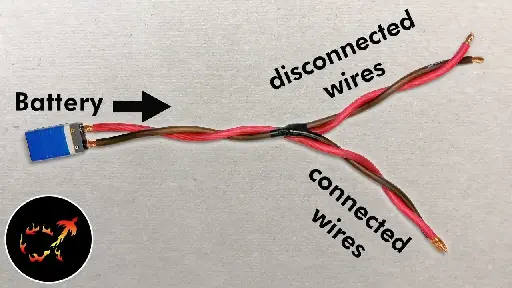You probably are familiar with the thing, just not under that name, and not as a subject of mathematical study. I am aware that there are, at least in theory, mathematicians never expanding beyond pen+paper (and that's fine) but TBH they're getting kinda rare. The last time you fired up Julia you probably used them, R, possibly, Coq, it'd actually be a surprise.
They're most widely known to trip up newbie programmers, causing excessive bug hunts and then a proud bug report stating "0.1 + 0.2 /= 0.3, that's wrong", to which the reply will be "nope, that's exactly as the spec says". The solution, to people who aren't numerologists, is to sprinkle gratuitous amounts of epsilons everywhere.
And this is exactly why I always humour tech support when they're asking me which lights exactly are on, which colour, and their blinking patterns. I've already made the diagnosis yes the problem is on their end but it's not like they have a way to know I'm not full of shit.
It's a wonderful world where 1 / 0 is ∞ and 1 / -0 is -∞, making a lot of high school teachers very very mad. OTOH it's also a very strange world where x = y does not imply 1 / x = 1 / y. But it is, very emphatically, an algebra.
Mostly it's pure numerology, at least from the POV of most of the people using it.
IEEE 754
I mean it's an algebra, isn't it? And it definitely was mathematicians who came up with the thing. In the same way that artists didn't come up with the CGI colour palette.
small module nuclear reactors.
Hmm let's see what changed since I last looked. This study seems recent, just looking at the publicly available sections:
SMRs do not represent dramatic improvements in economics compared to large reactors.
Translation: They're way more expensive than renewables. SMRs have some advantage which are mentioned (less land usage, non-intermittency), then we have
The advanced SMRs are compared to conventional large reactors and natural gas plants,
...but not renewables+storage, which would be a good comparison point. If it looked any good they definitely would've included it.
Now that doesn't mean that these things don't make sense for Microsoft. It might e.g. simplify power distribution within datacentres to a degree that other sources just can't, also reduce or eliminate the need for backup power, etc. But generally speaking I'm still smelling techbro BS.
We get it you're vegan.
Also most people are actually lactose-intolerant, the capability to retain production of lactase into adulthood is a mutation won through a lot of hardship and diarrhoea.
Side note Italy being blue explains why they have strange rules such as "no cappuccino after noon", it's not that it's bad or anything it's that many Italians can only stomach one, maybe two a day.
Different kinds of sugar are all sugar when they get to your gut.
Nope fruits are high in fructose while sucrose, aka table sugar, is 50:50 glucose and fructose. Fruit has the same or even worse makeup sugar-wise as HFCS, glucose can be used pretty much directly by the body while fructose needs to be processed by the liver, into fat. Evolutionary speaking that makes a lot of sense as when there's a lot of fruit around it's summer and you need to fatten up.
Real fruit vs. juice is a matter of fibre and satisfaction from chewing, it's way easier to overdrink than to overeat fruit.
It was someone different who said that. There's a chance the authors might've gotten some claim wrong because their maths and/or methodology is shoddy but it's a large and diverse set of authors so that's unlikely. Fraud in CS empirics is generally unheard of, I mean what are you going to do when challenged, claim that the dog ate the program you ran to generate the data? There's shenanigans about the equivalent of p-hacking especially from papers from commercial actors trying to sell stuff but that's not the case here, either.
CS academics generally submit papers to journals more because of publish or perish than the additional value formal peer review offers. It's on the internet, after all. By all means, if you spot something in the paper that's wrong then be right on the internet.
And everyone just uses "log" in CS because noone cares about the base.
...if you specifically want the natural one it's ln. ld for binary, base 10 is pretty much unheard of. Such an uneven number.
Oldie but goodie:
< > ! * ' ' #
^ " ` $ $ -
! * = @ $ _
% * < > ~ # 4
& [ ] . . /
| { , , SYSTEM HALTED
Waka waka bang splat tick tick hash,
Caret quote back-tick dollar dollar dash,
Bang splat equal at dollar under-score,
Percent splat waka waka tilde number four,
Ampersand bracket bracket dot dot slash,
Vertical-bar curly-bracket comma comma CRASH!
"waka" didn't gain popularity among people, at least not among any I ever heard about, usually it's angle bracket. I'm quite partial to 'tic' and 'tac'. The rest is standard or at least common, IMO | is pipe and {} braces. * is often called asterisk or star but splat is just better. And # is most definitely not "hashtag". Here's an overview of what's out in the wild.
POSIX. POSIX didn't get designed but documented behaviour that was portable between different UNIX flavours and was then declared a standard.
If you're annoyed by it just consider the xvf in tar xvf to be a subcommand as pull is in git pull. Tar simply has a fancy subcommand syntax. At least it's not dd.
GNU tar, at least a modern one, that is the one that happens to come with my system, won't try to read from /dev but stdin and then complain that it's a terminal and refuse.
Quoth POSIX on the f flag:
Use the first file operand [...] as the name of the archive instead of the system-dependent default.
That is GNU is compliant, here, the default is system-dependent. f - is required to be stdin, though, so you can bunzip2 foo.tar.bz2 | tar xf - or such in a portable manner, don't have to rely on tar having a z option (which is nonstandard) or it auto-detecting compression (even more nonstandard). What is not standard either is tar -x: Tar doesn't take leading hyphens. Tar is one of those programs so old its command line syntax got standardised before command line syntax standards were established. OTOH it's not nearly as bad as dd, you can interpret how tar does things in the same way as git pull: It's a subcommand, not a flag.
That paper is yet to be peer reviewed or released.
Never doing either (release as in submit to journal) isn't uncommon in maths, physics, and CS. Not to say that it won't be released but it's not a proper standard to measure papers by.
I think you are jumping into conclusion with that statement. How much can you dilute the data until it breaks again?
Quoth:
If each linear model is instead fit to the generate targets of all the preceding linear models i.e. data accumulate, then the test squared error has a finite upper bound, independent of the number of iterations. This suggests that data accumulation might be a robust solution for mitigating model collapse.
Emphasis on "finite upper bound, independent of the number of iterations" by doing nothing more than keeping the non-synthetic data around each time you ingest new synthetic data. This is an empirical study so of course it's not proof you'll have to wait for theorists to have their turn for that one, but it's darn convincing and should henceforth be the null hypothesis.
Btw did you know that noone ever proved (or at least hadn't last I checked) that reversing, determinising, reversing, and determinising again a DFA minimises it? Not proven yet widely accepted as true, crazy, isn't it? But, wait, no, people actually proved it on a napkin. It's not interesting enough to do a paper about.
Coal is going to stick around for certain applications for pretty much forever. What'd be interesting to see is charcoal refined to anthracite-levels of performance so applications needing that kind of grade can become carbon-neutral.
And it's not even always railway enthusiasts operating the remaining steam locomotives btw in Poland they're still in regular service. They phased out steam very late because of various economic reasons and once they did steam was already a nostalgic thing so they kept a depot and associated lines open. Contrast e.g. Germany where you don't see steam in regular service but on various isolated narrow gauge sections.
Nope. Good bread basically never comes in slices, and definitely not in the country that invented pre-sliced bread. You can get passable sliced bread in Germany but the good stuff definitely stays loaves at least until you buy it. I mean it's fine to slice it then and there if you have enough mouths to feed to have it finished by tomorrow.
Someone else here linked to knowyourmeme.
Most of them are glaringly obvious, some are meta. This one though can easily come across as "stuff closeted misandrists say to get a pat on the back" if you don't know the format. Flanked by a good dose of nerd shaming.
I mean it's true, men will literally comment on the internet before going to therapy. We will also literally tie our shoelaces before going to therapy.
You know what, this is a good thing. This time actually reading the knowyourmeme article, they're a parody reaction thing. Some 20, 30 years ago a new pattern of insult cropped up here in Germany, things like Warmduscher and Schattenparker, "someone who takes warm showers", "someone who parks in the shadow". They were never meant literally-literally, but they did come up with a definite air of "you should be toughing it out", "being a bit sensitive about things aren't we". They were quickly balanced out by things like Drahtseilbungeespringer, roughly "steel cable bungee jumper".
Humour is serious business and usually the best weapon against shittiness we have, and if occasionally we have things that can be misinterpreted, like here, overall it's still worth it.
While xmms is dead there's qmmp. Supports xmms and winamp 2 skins.

YouTube Video
Click to view this content.
> A new paper suggests diminishing returns from larger and larger generative AI models. Dr Mike Pound discusses.
> The Paper (No "Zero-Shot" Without Exponential Data): https://arxiv.org/abs/2404.04125

YouTube Video
Click to view this content.

YouTube Video
Click to view this content.
> There are lots of ways we are tackling the climate crisis, bringing down emissions and sucking carbon out of the atmosphere. But which method is the most cost-effective? For a given investment, which draws down the most carbon emissions? In this video I answer that question... and then talk about why that answer doesn't necessarily mean much.
On Wednesday, Parliament approved the Artificial Intelligence Act that ensures safety and compliance with fundamental rights, while boosting innovation.

Press release of the Parliement itself
---
- Safeguards on general purpose artificial intelligence
- Limits on the use of biometric identification systems by law enforcement
- Bans on social scoring and AI used to manipulate or exploit user vulnerabilities
- Right of consumers to launch complaints and receive meaningful explanations
---
On Wednesday, Parliament approved the Artificial Intelligence Act that ensures safety and compliance with fundamental rights, while boosting innovation.
The regulation, agreed in negotiations with member states in December 2023, was endorsed by MEPs with 523 votes in favour, 46 against and 49 abstentions.
It aims to protect fundamental rights, democracy, the rule of law and environmental sustainability from high-risk AI, while boosting innovation and establishing Europe as a leader in the field. The regulation establishes obligations for AI based on its potential risks and level of impact.
[...]

YouTube Video
Click to view this content.
> We interview half a dozen artillerymen, medics, and others, in this exploration of the life of artillerymen in the most intensive artillery war on the planet, the Russian invasion of Ukraine. The interviews are extensive and unfiltered. They cover topics like living on the front, cluster munitions, living underground, the mental health of soldiers, alienation from civilian life, what motivates them to fight, surviving in the winter, what they do for fun, and many more stories.

YouTube Video
Click to view this content.
This is a long one, flipping a common understanding of things on its head: Instead of seeing certain things e.g. tankies believe as Russian-caused disinformation (most prominently, colour revolution theory) it traces that stuff back to Lyndon LaRouche and chalks up what Russia is doing to KGB-brains swallowing an American conspiracy theory as truth: It's not that Russia has master-minded some disinformation campaign against the orange revolution, Maidan etc. to justify the invasion, the Siloviki actually believe that shit.
If you ask me that makes a jading amount of sense.

YouTube Video
Click to view this content.
> In this video, I measure a wave of electricity traveling down a wire, and answer the question - how does electricity know where to go? How does "electricity" "decide" where electrons should be moving in wires, and how long does that process take? Spoiler alert - very fast! > > I've been very excited about this project for a while - it was a lot of work to figure out a reliable way to make these measurements, but I've learned SO much by actually watching waves travel down wires, and I hope you do too!
The Solar System has had 8 planets ever since Pluto was excluded in 2006. This has made a lot of people very angry and been widely regard...

This is from the 37th Chaos Communication Congress, still ongoing y'all might find other things of interests there, e.g. sticking with looking at stars the talk about the Extremely Large Telescope. Congress schedule, live streams, relive and released videos (i.e. final cuts not the automatic relive stuff which is often quite iffy)
Talk blurb:
> The Solar System has had 8 planets ever since Pluto was excluded in 2006. This has made a lot of people very angry and been widely regarded as a bad move. But did you know Neptune was discovered as the 12th planet? Or that, 80 years before Star Trek, astronomers seriously suspected a planet called Vulcan near the Sun? This talk will take you through centuries of struggling with the question: Do you even planet?!
> In antiquity, scientists counted the 7 classical planets: the Moon, Mercury, Venus, the Sun, Mars, Jupiter and Saturn – but their model of the universe was wrong. Two thousand years later, a new model was introduced. It was less wrong, and it brought the number of planets down to 6: Mercury, Venus, Earth, Mars, Jupiter, Saturn. Since then, it's been a roller coaster ride of planet discoveries and dismissals.
> In this talk, we stagger through the smoke and mirrors of scientific history. We meet old friends like Uranus and Neptune, forgotten lovers like Ceres, Psyche and Eros, fallen celebrities like Pluto, regicidal interlopers like Eris and Makemake as well as mysterious strangers like Vulcan, Planet X and Planet Nine.
> Find out how science has been tricked by its own vanity, been hampered by too little (or too much!) imagination, and how human drama can make a soap opera out of a question as simple as: How Many Planets in Our Solar System?
The Extremely Large Telescope (ELT) is currently under construction in the Atacama desert in northern Chile by the European Southern Obse...

AstronomersEngineers1 presenting at the 37th Chaos Communication Congress for a general but technical audience. The congress is still going on in case you're interested, lots of interesting stuff there and don't be afraid of German talks there's real-time dubbing.
Talk blurb:
> The Extremely Large Telescope (ELT) is currently under construction in the Atacama desert in northern Chile by the European Southern Observatory (ESO). With a primary mirror aperture of 39m, it will be the largest optical telescope on earth. We will briefly introduce the history and mission of ESO and explain how a modern optical telescope works.
> The European Southern Observatory (ESO) is an intergovernmental organisation founded in 1962 and is based in Garching bei München. It develops, builds and operates ground-based telescopes to enable astronomical research in the southern hemisphere and to foster cooperation in the international astronomical community. In 2012 the ESO Council approved the Extremely Large Telescope (ELT) programme and its construction is scheduled for completion in 2028. The 39m primary mirror will make the ELT the largest optical telescope at that time.
> It will be located on the top of Cerro Armazones, a ~3000m high mountain in the Atacama desert in Chile. This site provides ideal optical conditions, but also comes with logistical and engineering challenges.
> We will walk you through the telescope and along the optical path to the instruments and explain some of the technologies involved to push the boundaries of ground-based optical astronomy.
---
1 Oh boy the "what is it good for" question got them swimming. "I'm not an Astronomer -- Science, I guess? Looking at things?" :)
Link to talks schedule, times are CET (deal with it)
Streams will show up here and final recordings here. There's generally also rough-cut recordings posted automatically after a talk is over, don't have a link for that yet.
Oh and for completeness' sake the congress' web page.

YouTube Video
Click to view this content.
> Today we're looking at an ion milling machine. This instrument accelerates argon particles to high velocities and then slam them into your sample, acting as an atomic sandblaster. The sample is slowly etched due to the transfer of kinetic energy from the argon gas molecules. It can etch literally any material, even diamond!

YouTube Video
Click to view this content.
> In the 80s one British firm was working of the future of high performance computing, where not 1 processor would work on a task but many. That company was inmos and the processor was the Transputer.

YouTube Video
Click to view this content.
GUEST: Anders Puck Nielsen - YouTuber and military analyst. *** At the beginning of November, Zaluzhnyi suggested in an interview with the Economist that Ukraine’s summer counter-offensive was stalling. “Just like in the first world war we have reached the level of technology that puts us into a stalemate,” he said, prompting a debate about whether the statement was correct. Timothy Snyder, a Yale professor, responded by arguing that war is not a game of chess, and that the quantity of resources or weaponry available to each side is not limited, as it is in a game. The west can help Kyiv by “dropping five more queens on the board” (at any time), he said – military aid that could allow Ukraine to break the deadlocked, as happened in Kherson and Kharkiv in 2022. *** SPEAKER: Today I’m speaking with Anders Puck Nielsen, military analyst and influential YouTuber based in Denmark. He specialises in naval warfare and strategy; in today’s video we are going to be talking about Ukrainian successes against Russia’s Black Sea fleet and state of the ground war in Ukraine.
Kremlin is scrambling to find more recruits to bolster its forces suffering heavy casualties as they mount an offensive in the east


YouTube Video
Click to view this content.
For people who want to read instead of making coffee while listening (or more details), the actual release notes: https://bevyengine.org/news/bevy-0-12/

YouTube Video
Click to view this content.
For people who want to read instead of making coffee while listening (or more details), the actual release notes: https://bevyengine.org/news/bevy-0-12/

YouTube Video
Click to view this content.
> Often in online conversations about the Russian invasion of Ukraine, Ukrainians are not included in the conversation, and their perspective is not shared. This is not only true of main stream news, but alternative news outlets as well. This also includes conversations had in the streaming place, and streams broadcasted by Twitch's top political streamer, Hasan Piker. So I gathered 4 Ukrainians from all across Ukraine, with varying political beliefs, to respond to statements made by Twitch's top political pundit.


